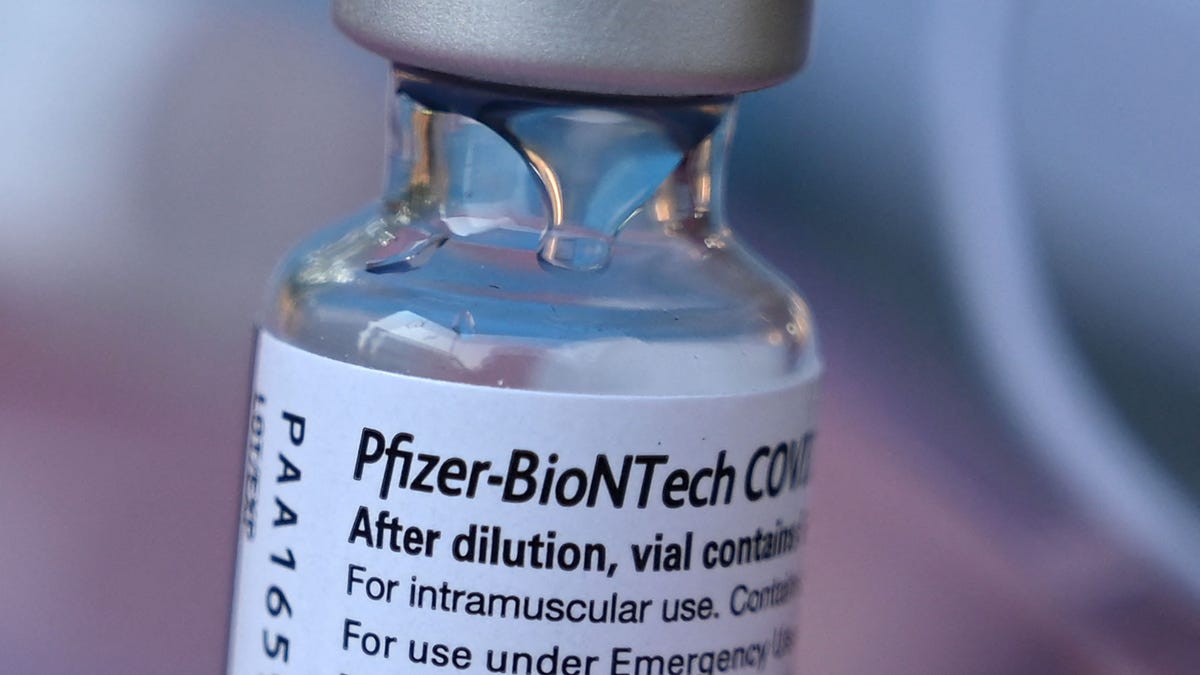FDA approves Pfizer booster shots for those over 65 and at-risk adults
The authorization comes a week after an FDA panel recommended a booster only for those groups.

A Pfizer booster has been authorized for adults over 65 and others at high risk of severe COVID-19.
The US Food and Drug Administration on Wednesday authorized a booster shot for people 65 and older who have received Pfizer's coronavirus vaccine. The agency also authorized booster shots for people 18 to 64 who are at high risk of severe COVID-19 or at high risk of serious complications from the disease due to frequent institutional or occupational exposure.
"This pandemic is dynamic and evolving, with new data about vaccine safety and effectiveness becoming available every day," acting FDA Commissioner Janet Woodcock said in a statement. "As we learn more about the safety and effectiveness of COVID-19 vaccines, including the use of a booster dose, we will continue to evaluate the rapidly changing science and keep the public informed."
The FDA authorized the booster to be given at least six months after people have received their second injection. At least 22 million people in the US are six months or more past their second dose of the Pfizer vaccine, based on information the CDC released in January.
COVID-19 vaccines continue to be highly effective in preventing hospitalization. Over the summer, as the delta variant took hold in the US, the number of cases, hospitalizations and deaths from COVID-19 surged. Those who are unvaccinated have accounted for nearly all the hospitalizations and deaths -- over 97% as of July. With its new federal mandates, the Biden administration aims to counter the surge and put pressure on tens of millions of people who are eligible but aren't yet vaccinated.
Recent studies show that the effectiveness of vaccines may start to decline after six to eight months and a vaccine booster would pump up immune protection against COVID-19 and variants. To prepare for booster vaccinations, the federal government said it has a sufficient supply of all three vaccines available in the US, including Johnson & Johnson and Moderna.
Woodcock said those in the high-risk category could include "health care workers, teachers and day care staff, grocery workers and those in homeless shelters or prisons, among others."
The decision follows a vote last week by an FDA advisory committee that recommended against giving a Pfizer booster shot to everyone already vaccinated. The panel, instead, endorsed booster shots for those 65 and older and those at a higher risk of severe COVID-19 infections.
It also comes as an advisory committee for the Centers for Disease Control and Prevention is meeting this week to discuss the need for a COVID-19 booster shot for the Pfizer vaccine.
There's an argument that booster shots in the US and other wealthy countries should be stalled until there's more COVID-19 vaccine distribution in other countries. The World Health Organization in particular has been outspoken about the fact that such nations, including the US, shouldn't be giving extra doses to healthy people while as few as 2% of people in low-income countries have had a coronavirus vaccine, according to Our World in Data.
Another area of concern for many Americans is when children under 12 will be eligible for a vaccine. Children 12 and older have been eligible for the Pfizer vaccine since May. But after kids began returning to classrooms in August, the US saw its biggest wave of COVID-19 cases in children compared with any point in the pandemic, according to data collected by the American Academy of Pediatrics and the Children's Hospital Association.
Pfizer said on Monday its vaccine is safe and effective for children ages 5 to 11. It could still take weeks or months before the vaccine receives emergency authorization from the FDA and longer still until any kind of formal approval, as part of the FDA's process.

